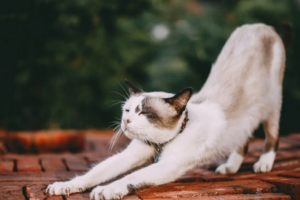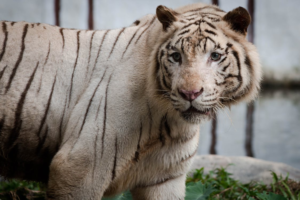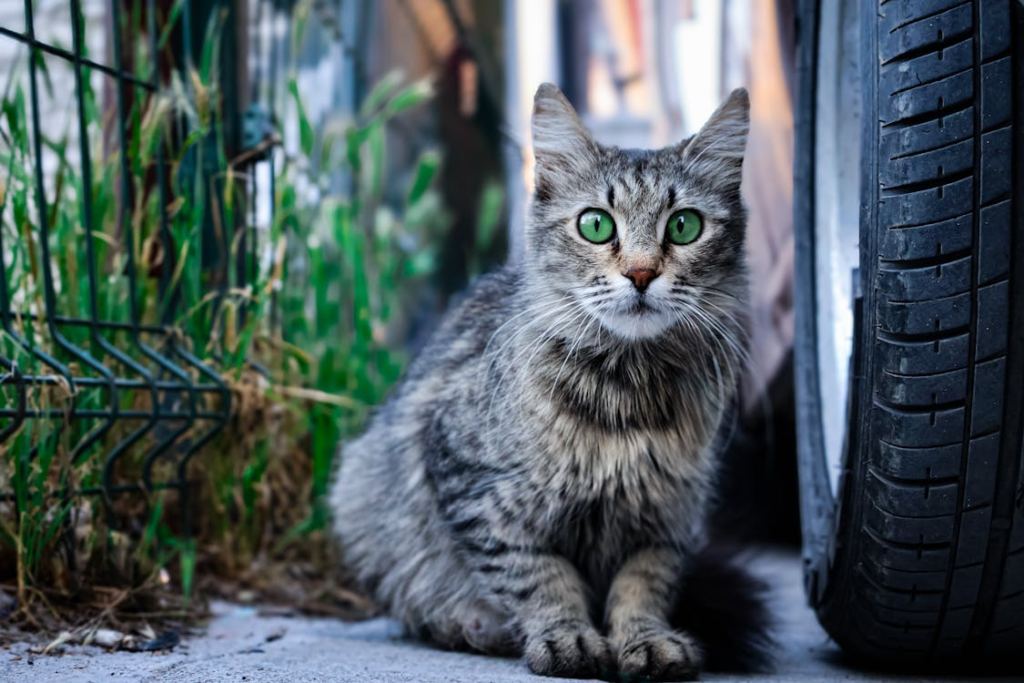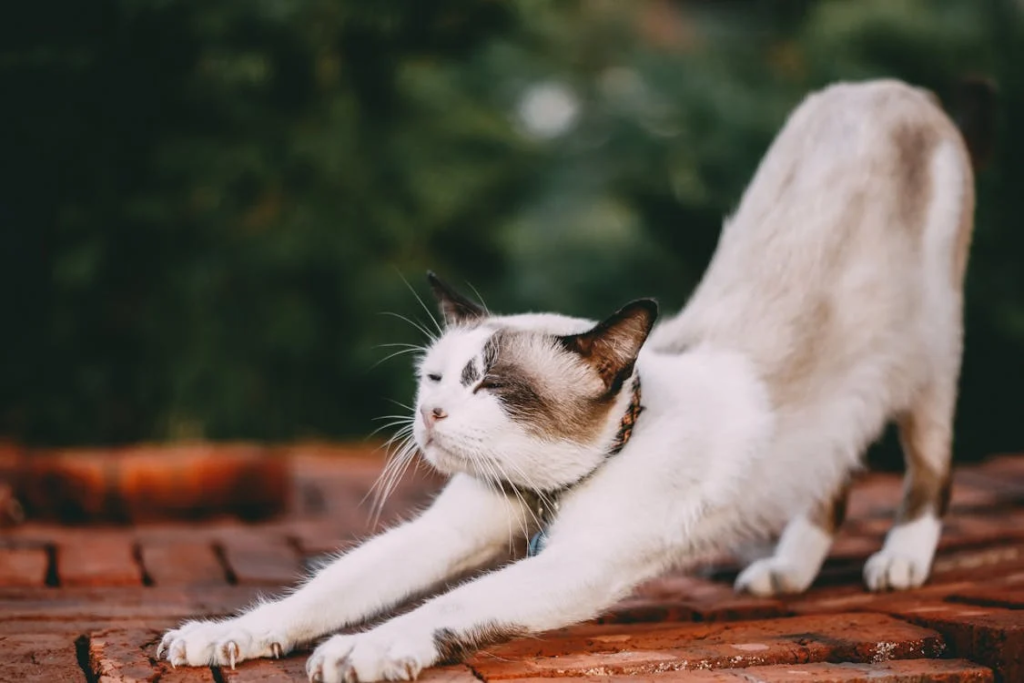Feeding a cat. Sometimes it’s very tempting to feed cats human food. But cats have different metabolism than humans, so you should be aware that there are food which can be poisonous to cats, from mild digestive upsets to death. So what to feed cats? Listed here are some common food NOT TO BE FED to your feline friend. It would be a must to take note and remember them when feeding cats to avoid cat poisoning.
Poisonous to Cats:
1. Any types of alcoholic beverages. I know some people love seeing their cats drunk, as ridiculous as it may sound. Alcohol is toxic to cats. Too much alcohol can cause more than intoxication, but to coma and death.
2. Baby food. While some are safe and not poisonous to cats, there are baby foods that contains onion powder, a flavoring enough to dehydrate small animals that even a small amount can be lethal. Please check the ingredients of your baby food before letting your cats take even a small lick. (or best not to give them any at all)
3. Bones from meat, poultry, and yes, even fish. This is a big no when feeding a cat. Pop culture might have taught us that cats love to eat this, but bones can sliver their throat, cause laceration and obstruct the digestive tract. Many may say that if given raw, bones won’t splinter, but keep in mind that there is always a chance that it would. Just take the bones out before you feed them these types of food.
4. Canned tuna. Not only does canned tuna lack the proper nutrients your cat requires, they can also cause feline stones and rob them of taurine. Canned tuna for cats are also known to cause thiamine deficiency, so it is very important to vary what you feed your cat.
5. Chocolates, tea, coffee, and anything that has caffeine. Caffeine is harmful to your cat’s nervous system. It is also not a good substitute for water as it is a diuretic. Theobromine is found in chocolate and can cause vomiting and diarrhea.
6. Citrus. Although it is unusual for a cat or a kitten to like citrus or the smell of it, you wouldn’t want them getting near it. Citrus oil is poisonous to cats. Make sure you keep any citrus peels away from them.
7. Dog food. There’s a reason why dog food is made for dogs. Please do not feed your cats dog food as they might not contain the nutrients required for your cats, leading to malnutrition and heart diseases.
8. Fat trimmings. Feeding your cats fat trimmings is not advised. It reportedly causes pancreatitis, an inflammation of the pancreas. Make sure you cross this out when thinking of what to feed a cat.
9. Fish. Surprise! Yes, feeding your feline friend fish can be hazardous to their health. While a lot of cats love fish, it is not a good idea to feed it to them. Aside from having bones (see #3), most canned fish are high in phosphorus and magnesium, which might cause urinary tract problems. Fish also has a high level of histamine involved in allergic reactions. Small amounts of “ish included as source of omega-3 fatty acids in cat foods are not a problem, but should not be a mainstay of any cat’s diet.
10. Grapes and raisins. These types of food contains an unknown toxin that is poisonous to cats. It causes kidney damage. It is better not to feed cats gapes and raisins, given the unknowns associated to them.
11. Vitamin supplement with iron. Cats don’t have a way to release excessive iron in their bodies, thus making them prone to iron overdose. Note that even small doses of iron taken over a span of time can still cause toxicity.
12. Macadamia nuts. Though most common occurrence are in dogs, it is highly advisable not to feed your cats macadamia nuts. According to the Merck Veterinary Manual, “Ingestion of macadamia nuts by dogs has been associated with a nonfatal syndrome characterized by vomiting, ataxia, weakness, hyperthermia, and depression.” The same might be said for cats. In addition, most nuts are high in fats, making it hard for cats to digest and may lead to gastrointestinal problems.
13. Marijuana. Cats and weed is a bad idea. Marijuana smoke contains carcinogens and toxins that clings to your cat’s coat. It can cause vomiting and damage your cat’s nervous system.
14. Milk and dairy products. Though not really poisonous to cats, they may develop diarrhea when given large amounts of milk and other dairy products.
15. Mushrooms. Mushrooms can be cat poison, causes shock and even death. Common symptoms of mushroom poisoning in cats are seizures and vomiting. Worst-case scenario is coma and death.
16. Onions and garlic. Onions and garlic can be poisonous to cats if ingested. Onions contain sulfoxides and disulfides, which can damage red blood cells and cause anemia. Ingested in small amounts isn’t as harmful, but over time can be an issue.
17. Persimmons. Though not poisonous to cats, persimmon seeds can cause intestinal obstruction and enteritis.
18. Rhubarb leaves. Contains oxalic acid, a colorless substance that is poisonous to cats and can be fatal to cats.
19. Salt. Be careful not to give your cats large amount of salt. It may lead to electrolyte imbalance.
20. Tobacco. Nicotine toxicity in cats is never good. It can increase your cat’s heart beat, resulting in coma and, in some cases, death.
21. Yeast dough. Before baked, yeast dough needs to rise, and, that’s exactly what it would do in your cat’s stomach. The dough can cause severe pain when it stretch the abdomen. Furthermore, when the yeast ferments the dough to make it rise, it produces alcohol that can lead to alcohol poisoning.
What cats eat is very important. No cat owner wants to poison cats or pose any kind of harm to them, so make sure that you are exposing your feline friend to the right food and ingredients. Whether it be poisonous plants for cats, or leftover food, please make it a point that you only give your cats and kittens food that they can ingest properly. Now that you know that certain household food and items can be poisonous to cats, feeding them should be done with care. If you plan on incorporating raw food on your cat’s diet, read this safety guide. If you experience any symptoms of cat poisoning, go to your local veterinary as soon as you can. Your pet’s safety is of utmost importance.
Tell us what you think. We appreciate your comments.









2 thoughts on “Poisonous to Cats: What Not to Feed Your Cats”